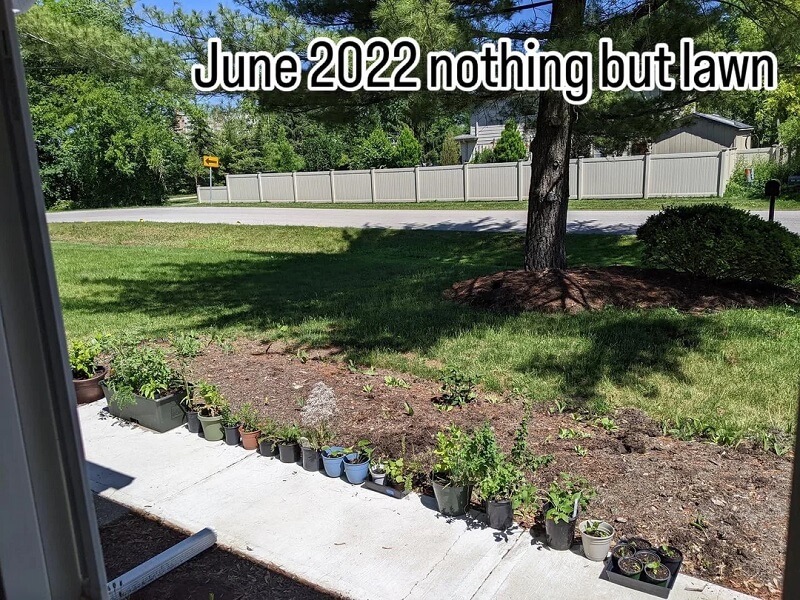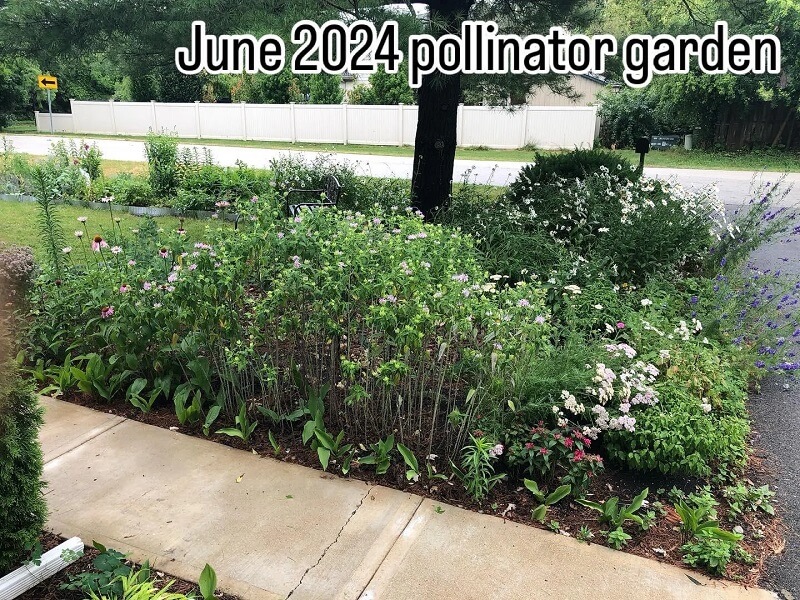In an inspiring post in r/NativePlantGardening, one Redditor documented their quest for greatness — all in their front yard.
Non-native Kentucky bluegrass, invasive in many areas, fills many yards, dissuading pollinators from making plants grow. However, there is a rising trend to rewild front yards and backyards to welcome back pollinators. Most people have a very clean-cut assumption — literally and metaphorically — of how yards should look. Times are changing to something more natural.


A satisfying photo carousel shows there was nothing but lawn in June 2022. Two years later, the front porch yard is blooming with yarrow, lemon balm, wild strawberries, coneflower, and more. "It looks so much prettier now," one commenter noted.
Native lawns offer many benefits for people willing to commit to their growth, the USDA reveals. The plants don't require fertilizers or pesticides, eliminating chemical pollutants. They also require less water because the roots are made to reinforce soils and hold nutrients. This saves homeowners countless hours in maintenance and can save $225 yearly on water bills.
The most significant benefit is the boon native plants provide to local ecosystems. The world has a shortage of pollinators amid changing temperatures and habitat loss, and food scarcity is becoming more widespread, partly as a result of this. Inviting pollinators to boost their numbers and protect the world's food can increase food security.
What could you use to get started on a native lawn? Research native plants in your area, which may include buffalo grass, milkweed, clover, and daisies — the National Wildlife Federation will help. Then, stop obsessively mowing. Native species people misconstrue as pesky weeds might be trying to break through. Xeriscaping, or drought-resistant landscaping, is also helpful in minimizing irrigation needs.
Most importantly, always be willing to learn more.
Commenters are also more than willing to advise people on their pollinator garden-building escapades. One warned, "It looks good, but you are volcano mulching that poor tree. Expose that root flare." Volcano mulching has been called out many times as a practice that damages trees.
The original poster was grateful for the knowledge and relayed their actions to make their yard even healthier. "I learned a lot in this process and need to replicate to more sections around the house," the poster stated.
Even partial lawn replacements make a difference. This is clearly not the end of their journey.
Join our free newsletter for easy tips to save more, waste less, and help yourself while helping the planet.









